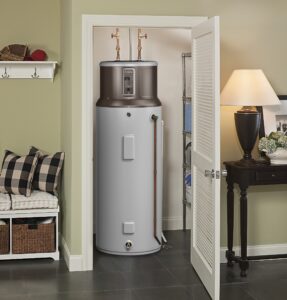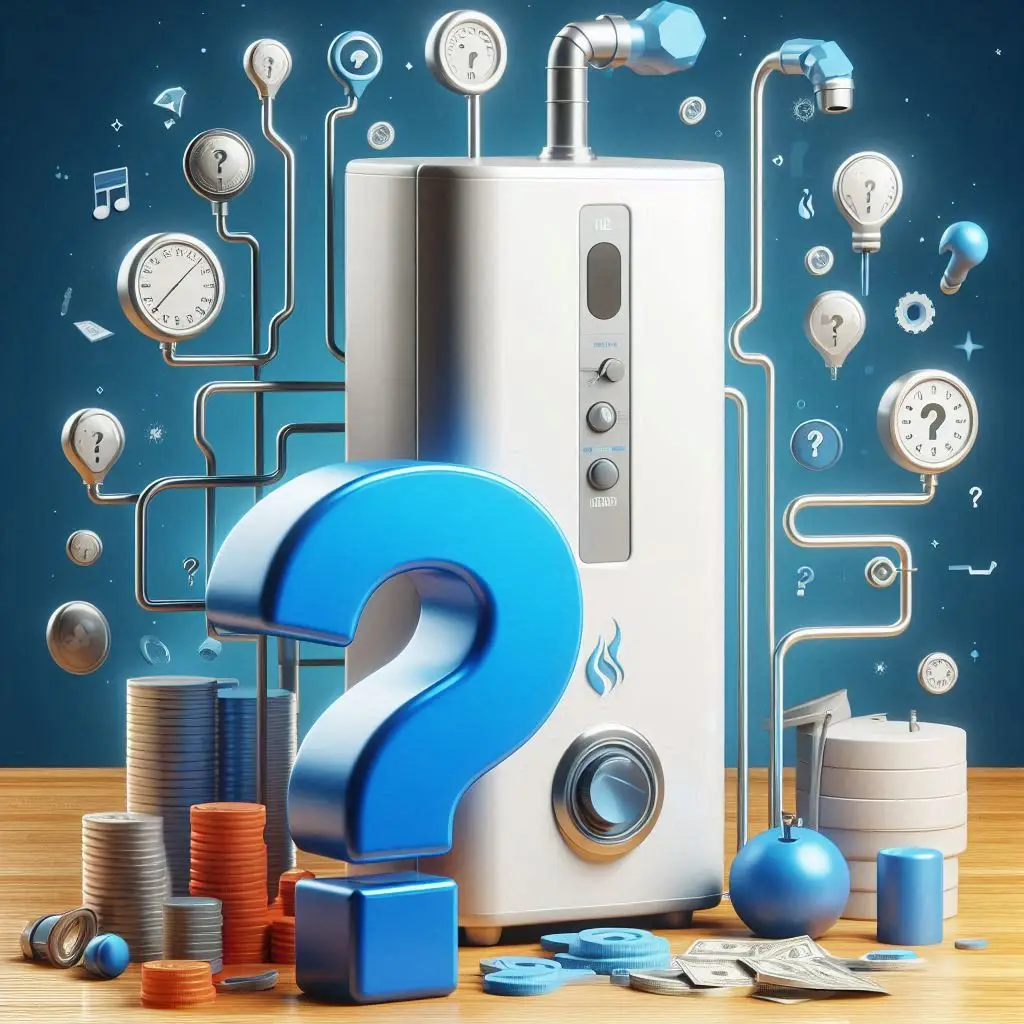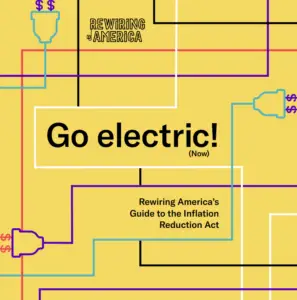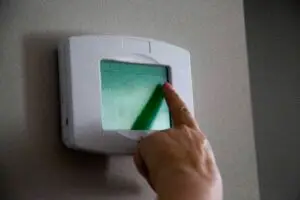Tankless water heaters, sometimes called “instant” water heaters are an attractive alternative to traditional water heater tanks. They take up less room, have no standby energy losses from keeping a tank of water warm 24/7, and can provide an endless supply of hot water. They come in gas burning and electric varieties and all shapes and sizes, from small units that can provide hot water to a single sink faucet to large units that can supply hot water to an entire house. But the evolving energy landscape of the United States is quickly weakening the case for tankless water heaters. Does it still make sense to invest in a tankless water heater?
Gas tankless water heaters will likely remain a viable option for generations. They work extremely well as long as propane or natural gas service is available, but even the most efficient models can never be more than ~98% efficient and none can operate without the fumes, emissions, and combustion air ingestion associated with burning fossil fuels. Electric tankless water heaters work acceptably well. They are 100% efficient and can be installed almost anywhere without the need for an exhaust flue or combustion air but require a truly tremendous amount of electric power to operate. Whole home units can require up to 80 amps to operate making them by far the most power intensive appliances that can be installed in a home: more than electric furnaces, clothes dryers, or even electric vehicle chargers.
A much more attractive option exists that beats these technologies in almost every metric: heat pump water heaters. These water heater tanks are equipped with compressor technology that absorbs heat from the surrounding air and moves it into the tank to warm the water. Because they move heat instead of “creating” it, they can operate at 300-400% efficiency and can do so with as little as 20 amps of power. As a happy side effect, they dehumidify the air of the space they are installed in.
 Heat pump or “Hybrid” water heaters require more room to install than tankless units and are generally more expensive upfront, but federal tax credits are available to help homeowners with the cost, and the substantial savings they generate over their lifetime more than make up for the initial investment. If having a large supply of hot water is a priority for you, these lifetime savings can justify investing in a heat pump water heater with a larger tank. If space is limited, ducting kits allow for installation almost anywhere a regular water tank can fit. If standby losses from the tank are a concern, modern hot water tanks are extremely well insulated and the high efficiency of the compressor technology is a much larger efficiency advantage than the absence of a tank. Many heat pump water heaters can take advantage of peak shifting and demand response programs offered by some utilities to provide extra value to the homeowner. By virtue of their “instant” design, tankless water heaters never can.
Heat pump or “Hybrid” water heaters require more room to install than tankless units and are generally more expensive upfront, but federal tax credits are available to help homeowners with the cost, and the substantial savings they generate over their lifetime more than make up for the initial investment. If having a large supply of hot water is a priority for you, these lifetime savings can justify investing in a heat pump water heater with a larger tank. If space is limited, ducting kits allow for installation almost anywhere a regular water tank can fit. If standby losses from the tank are a concern, modern hot water tanks are extremely well insulated and the high efficiency of the compressor technology is a much larger efficiency advantage than the absence of a tank. Many heat pump water heaters can take advantage of peak shifting and demand response programs offered by some utilities to provide extra value to the homeowner. By virtue of their “instant” design, tankless water heaters never can.
While tankless water heaters will always have their place on rarely used shop sinks and high-demand commercial applications, the hot water needs in the home of the future will be best served by heat pump water heaters. Learn more about the tax incentives available for heat pump water heaters and more at our energy efficiency page.





Tankless water heaters have been getting more popular every year and maybe soon it’ll be more common in home and business renovations. This is a great article!
Hello! Do you install many heat pump water heaters? They are the preferred water heating technology from an energy perspective when space allows.